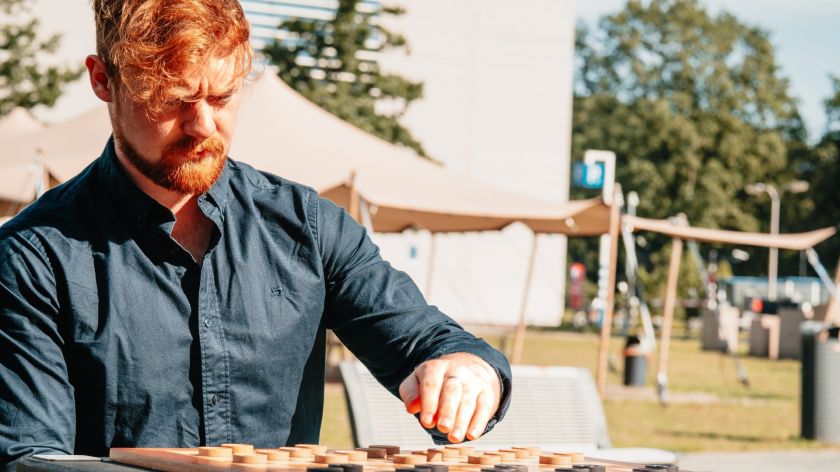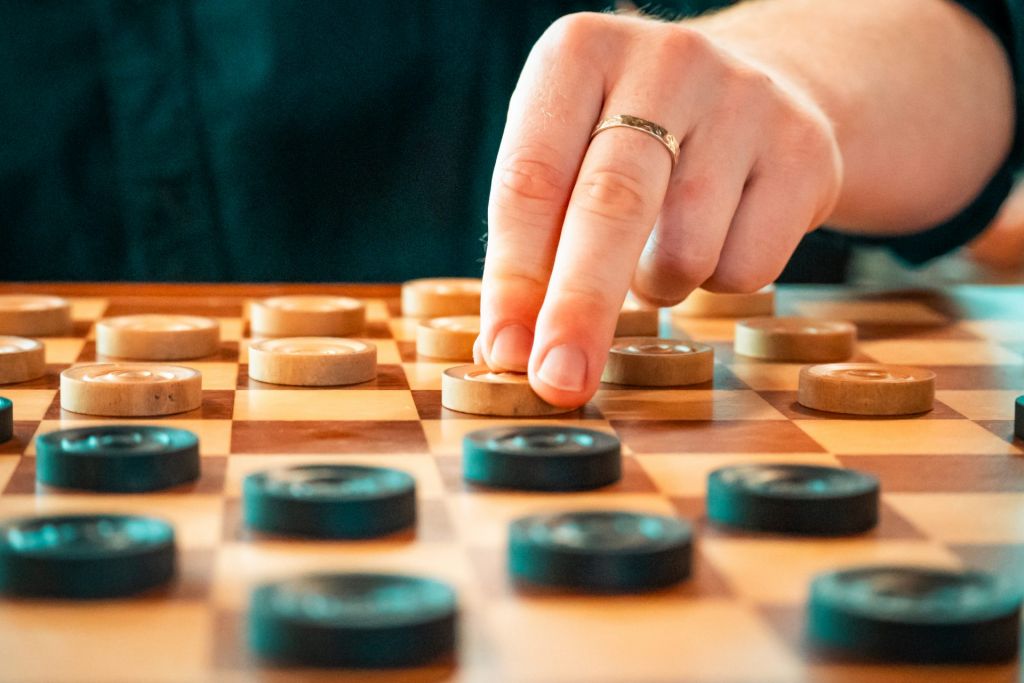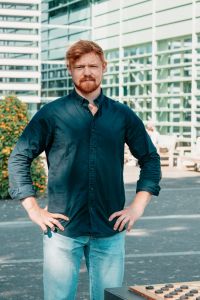Student Jan will give his all at the Draughts World Championship in Curaçao
-
 Jan Groenendijk. Photo: Diede van der Vleuten
Jan Groenendijk. Photo: Diede van der Vleuten
Physics and astronomy student Jan Groenendijk is one of the contestants of the Draughts World Championship, set to begin in Curaçao on Thursday. He hopes to win the world title. ‘I think I have a good chance.’
With more than seventeen years of experience, Radboud student Jan Groenendijk (25) will be participating in the Draught World Championship, set to take place in Curaçao this year. Compared to his previous world cup stints – including 2nd place in 2015 – the student will be heading into the tournament with a different mindset this year. ‘My preparation was excellent. If there’s one world cup I can win, it’s this one’, Groenendijk says in a meeting room on campus.
His bid is helped by the fact that the traditionally very strong Russian players are barred from competing due to the war in Ukraine. But Groenendijk also thinks that his constitution will give him an edge. ‘A game can take between four and five hours, which takes its toll on the body’, he says. ‘If you play two of those games in a day, you’re done. But if you’re physically fit, you tend to sleep better and recover quicker after such a long game, which means you won’t be as fatigued during a tournament.’
Preparation
Groenendijk earned his ticket to the world cup by winning the European Championship in Wageningen last year. His preparations remained the same throughout. ‘I always rewatch my opponent’s last three years of matches, so I can analyse their play patterns; I’ve already prepared profiles on many of my opponents.’
But the most important preparation takes place inside Groenendijk’s head. ‘Preparing myself is more important than preparing for my opponents. I can start second-guessing myself in the middle of a match. I don’t need that kind of tension in my head; I just need to play.’
Worn-out board
Groenendijk’s draughts career started out in primary school when he was scouted by the draughts club at a tournament. The very first pages of an exercise book for beginning draughts players sparked his enthusiasm. ‘It was love at first sight.’
The club did not often encounter a draughts fanatic like that, he says. ‘Things got a little out of hand. At some point, I started getting lessons from the technical director of the Draughts Federation. He asked me to do a bunch of difficult tasks that required a lot of mental arithmetic. Essentially, it was draughts training without using a game board.’
Now, Groenendijk does most of his training without a board. However, he still keeps one at home, to which he is quite attached. ‘It’s the board I’ve used for training ever since I started playing. Because I’ve used it so much, it’s a little worn out. I think it’s made from regular old birch wood, but it’s very special to me.’
‘I try to play draughts at least one hour per day’
But he does play the occasional draughts game online or reads a book. Like other professional athletes, Groenendijk tries to spend time on his sport every single day: ‘I try to play draughts at least one hour per day.’
Little brother
Even so, for many people, draughts will always be the little brother to chess; something Groenendijk can tell from the organisation of the world cup. ‘The problem with every draughts tournament is that you never know where you’re going to end up. There were no details on this tournament available until a month ago, not even a playing schedule or a list of accommodations. Everything’s a little less professional than you might think. But I’ve gotten used to it by now.’

Did he ever consider switching from draughts to chess? ‘I know the rules of chess, but that’s the end of it. If I could play chess at the level I play draughts, I’d be a millionaire by now’, according to Groenendijk. ‘But I can’t complain. Because I am one of the top 8 draughts players in the world, I get paid by the NOC*NSF (Dutch Olympic Committee, eds.). It’s enough to pay for my studies.’
China
Groenendijk is not afraid of falling into a pit after the world championship. He will be travelling to China and Poland a few weeks after the tournament and round off his busy playing schedule with the Dutch championship in December. ‘The first semester takes some juggling; I don’t really have time to study until the second semester.’
‘If I can win the world cup, I’m going to want to try for another one. But I think that I’ll be eager to study when the tournament is over.’
Translated by Jasper Pesch




